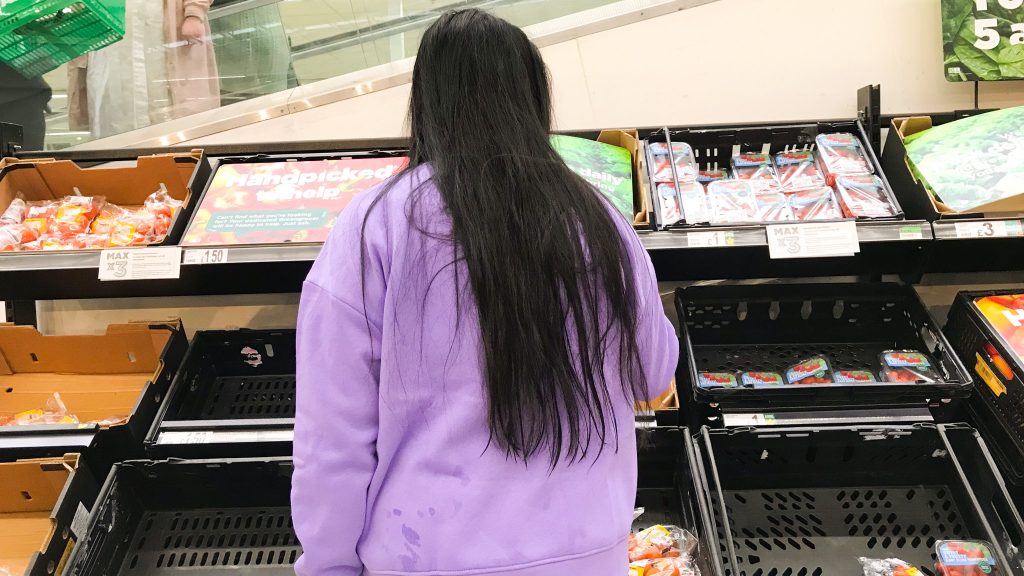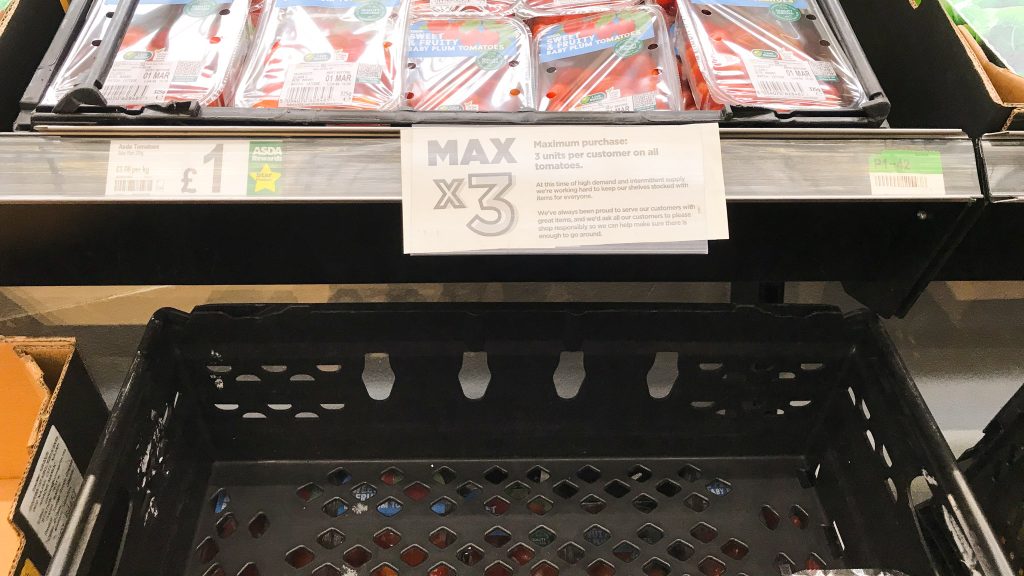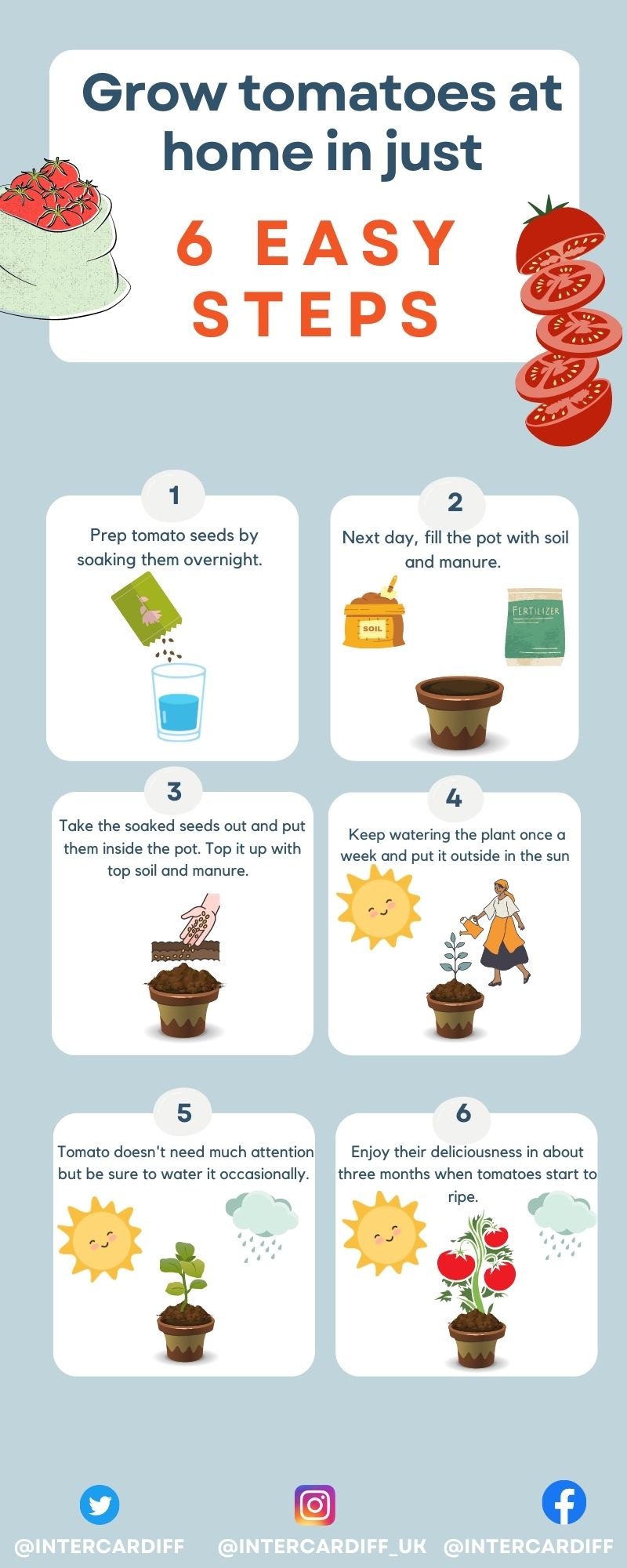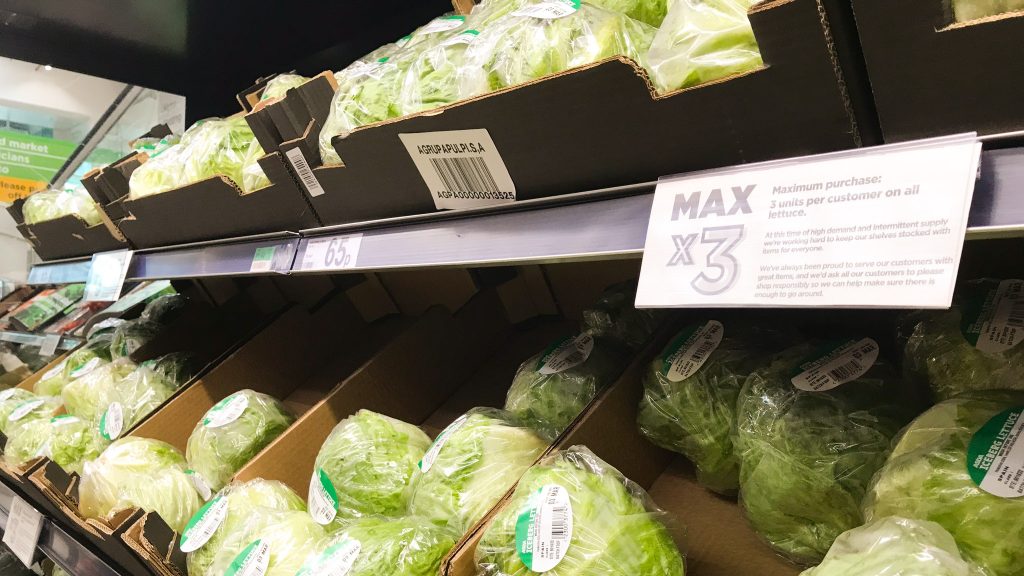The British government blamed European and African weather for vegetable shortages across the country but is it really the reason?

If you are struggling to find tomatoes in the supermarket this week then you can happily blame it on Brexit, according to a leading food campaigner.
While the government has been quick to blame weather in southern Europe, campaigners believe that it is nothing but just a good excuse.
Liz Webster from the campaign group Save British Food said, “It is not just Spain, plenty of southern European countries can produce tomatoes. It is just a jolly good excuse to blame Spain and its weather.”
“We have got extra cost to export to Europe so all of these things are breaking the British food system.”
Supermarkets like Asda, Morrisons, and Tesco have limited three packets of tomatoes, cucumbers, and lettuce per person to tackle vegetable shortages.

Experts believe that food production in the UK has got worse because the country has not got effective policies. “Shortages in vegetables are happening because other countries in Europe have got effective policies and food strategies and they are within the single market,” said Liz.
According to OEC (Observatory of Economic Complexity), tomatoes were the 195th most imported product in the United Kingdom and after Brexit, the situation has worsen.
Experts say that post Brexit, the government has introduced a new law that heavily focuses on the environment rather than the production and cultivation of food.
“We have a new agriculture act which basically doesn’t even mention food or food production, it’s all about the environment,” said Liz.

Britain’s production of vegetables has continued to decline since 2020 and more than half of products are being imported from overseas. As Fresh plaza reports, the UK imports more than five times tonnes of tomatoes than it actually grows.
The cost of living crisis is making things worse as energy prices soar day by day. Heating greenhouses and using coolers would mean adding extra money to the production of food.
“Our energy costs are much higher than on the continent, so that means our input cost for farmers here are higher. We have been struggling for over 30 percent in the last year to heat greenhouses, check-in sheds or coolers. This means they are adding another layer of costs when we had subsidy removed and our market has been shrunk by Brexit,” said Liz.

The shortage of tomatoes and cucumbers has extended to other fruits and vegetables as well. Experts are predicting carrots and apples to go off the shelves next.
